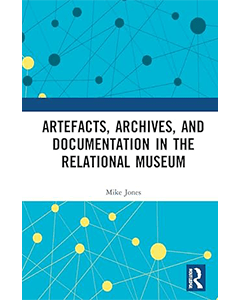
Abstract
Artefacts, Archives, and Documentation in the Relational Museum provides the first interdisciplinary study of the digital documentation of artefacts and archives in contemporary museums, while also exploring the implications of polyphonic, relational thinking on collections documentation. Drawing on case studies from Australia, the United Kingdom, and the United States, the book provides a critical examination of the history of collections management and documentation since the introduction of computers to museums in the 1960s, demonstrating how technology has contributed to the disconnection of distributed collections knowledge. Jones also highlights how separate documentation systems have developed, managed by distinct, increasingly professionalised staff, impacting our ability to understand and use what we find in museums and their ever-expanding online collections. Exploring this legacy allows us to rethink current practice, focusing less on individual objects and more on the rich stories and interconnected resources that lie at the heart of the contemporary, plural, participatory 'relational museum.'
Artefacts, Archives, and Documentation in the Relational Museum is essential reading for those who wish to better understand the institutional silos found in museums, and the changes required to make museum knowledge more accessible. The book is a particularly important addition to the fields of museum studies, archival science, information management, and the history of cultural heritage technologies.